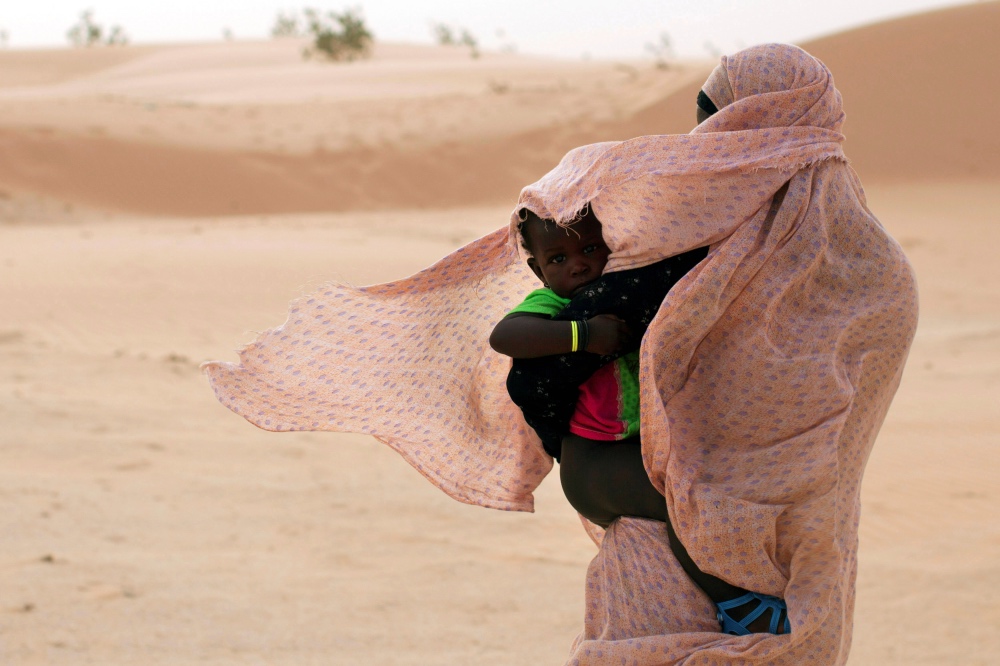Nairobi, Kenya
Thomson Reuters Foundation
Women and girls in Africa are still being pushed into forced or early marriages, while those in unhappy unions face discrimination when seeking divorce, campaigners said on Tuesday, urging governments to enforce fairer family laws.
The Solidarity for African Women’s Rights – a coalition of 50 groups – said while most nations had committed to a pan-African pact on women’s rights, states had failed to enforce laws relating to marriage, divorce, child maintenance and inheritance.

A woman shields her child from the wind while walking on sand dunes in Nouakchott, Mauretania, on 22nd June, 2014. PICTURe: Reuters/Joe Penney/File Photo
The pact, known as the Maputo Protocol, came into force in 2005 and guarantees extensive rights in areas from protection against violence to economic empowerment.
Anisah Ari from the Nigeria-based Women Rights Advancement and Protection Alternative, a SOAWR member, said while African nations had taken steps in other areas such as tackling sexual violence, family laws were largely being ignored.
“While the Maputo Protocol affirms women’s rights to exercise self-determination and bodily autonomy – free from discrimination, coercion and violence – many African girls and women continue to bear the brunt of discriminatory family laws,” Ari told a news conference.
“For instance, despite the fact that women have a right to inherit their husbands’ properties after death, this is not always assured – leading to protracted legal battles.”
The SOAWR members, which come from 25 African countries, said many nations had enacted progressive family laws in line with the Maputo Protocol, but the laws were not being enforced.
Women’s contribution and access to familial property was rarely recognised during marital disputes, and women often faced an uphill struggle when seeking child maintenance, they added.
The legally binding pact, lauded as the most progressive human rights instrument for women and girls in Africa, has been signed and ratified by 42 of the African Union’s 55 member states.
Three countries – Botswana, Morocco and Egypt – have neither signed nor ratified it.
The SOAWR members – which come from countries such as Tunisia, Uganda, South Africa, Nigeria and Kenya – said addressing the protection and rights of women and girls in the family was the integral to the advancement of women.
“Family laws are key as the family unit is where the socialisation of gender roles begins. It is where girls first learn their rights and roles in society,” said Violet Muthiga from Sauti Ya Wanawake, a Kenya-based women’s rights group.
“So if we can intervene at the family level to ensure they are protected and treated fairly, we can change perceptions and curb practices like child marriage and female genital mutilation – all of which happen with the family unit.”





